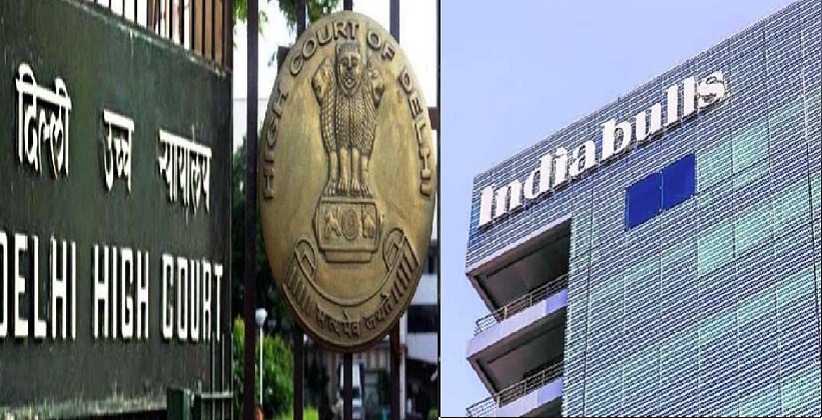New Delhi – The Delhi High Court new rule for trial courts has established crucial precedent regarding the issuance of summons in criminal cases. Justice Amit Mahajan’s landmark ruling demonstrates how the Delhi High Court new rule for trial courts will protect individuals from arbitrary legal harassment. This significant development in judicial procedure shows that the Delhi High Court new rule for trial courts prioritizes proper examination of facts before summoning accused persons.
The case that prompted this Delhi High Court new rule for trial courts involved a ₹98 lakh cheating allegation where summons were issued without adequate scrutiny. The court’s intervention highlights how the Delhi High Court new rule for trial courts will prevent mechanical application of legal procedures that could harm innocent individuals.
Background of the ₹98 Lakh Cheating Case

The circumstances leading to the Delhi High Court new rule for trial courts began with a complaint filed by M/S Indiabulls Securities Limited under Section 420 of the Indian Penal Code. The securities trading company alleged that the accused dishonestly induced them to open a trading account and utilized margin trading facilities without proper repayment of borrowed funds.
However, the implementation of the Delhi High Court new rule for trial courts revealed serious flaws in how the original summons were issued. The accused individual had approached the High Court challenging a September 28, 2013 trial court order that summoned him without proper consideration of the evidence. This challenge ultimately resulted in the Delhi High Court new rule for trial courts that will protect future defendants from similar arbitrary treatment.
Also Read: Shocking Kolkata Rape Case In Law College: 3 Arrested Including Ex-TMC Student Leader
The accused’s defense demonstrated why the Delhi High Court new rule for trial courts was necessary. He argued that the securities company had actually caused him losses by selling shares worth ₹7 crore without his express authorization, fundamentally changing the nature of the alleged wrongdoing.
Justice Mahajan’s Critical Observations


The Delhi High Court new rule for trial courts emerged from Justice Amit Mahajan’s careful analysis of the summoning process. The judge observed that “issuance of summons is a serious issue and it is imperative that the summoning order shows due application of mind and examination of the facts of the case as well as the evidence on record.”
This observation forms the cornerstone of the Delhi High Court new rule for trial courts, establishing that mere prima facie satisfaction without reasoning is insufficient for summoning accused persons. The Delhi High Court new rule for trial courts now requires magistrates to demonstrate genuine examination of evidence rather than mechanical processing of complaints.
Justice Mahajan’s ruling emphasized that the Delhi High Court new rule for trial courts prevents the misuse of criminal proceedings to “wreak vengeance or harass the other side.” This protection mechanism ensures that the Delhi High Court new rule for trial courts serves justice rather than enabling legal harassment.
Requirements for Proper Summons Issuance
Under the Delhi High Court new rule for trial courts, magistrates must demonstrate clear application of mind when issuing summons. The court specified that “merely taking note of the facts and recording prima facie satisfaction, without giving any reasons for the same, is insufficient.”
The Delhi High Court new rule for trial courts establishes several key requirements for valid summons issuance. First, magistrates must thoroughly examine all evidence presented in the complaint. Second, the Delhi High Court new rule for trial courts demands clear reasoning for why criminal proceedings are warranted rather than civil remedies.
Additionally, the Delhi High Court new rule for trial courts requires examination of whether allegations actually disclose elements of criminality. In the securities case, the court found that the dispute was essentially civil in nature, demonstrating how the Delhi High Court new rule for trial courts protects against inappropriate criminalization of commercial disputes.
Protection Against Abuse of Legal Process
The Delhi High Court new rule for trial courts provides crucial protection against the misuse of criminal proceedings for debt recovery. Justice Mahajan noted that the securities company had attempted to “give a criminal cloak to civil proceedings for recovery of dues,” which the Delhi High Court new rule for trial courts specifically prohibits.
This aspect of the Delhi High Court new rule for trial courts is particularly important for business disputes where one party might seek criminal sanctions for what are essentially contractual disagreements. The Delhi High Court new rule for trial courts ensures that criminal law is not weaponized for commercial advantage.
The ruling demonstrates how the Delhi High Court new rule for trial courts will prevent continuation of proceedings that amount to “abuse of law.” This protection mechanism shows that the Delhi High Court new rule for trial courts prioritizes justice over procedural convenience.
Impact on Future Criminal Proceedings


The Delhi High Court new rule will significantly impact how criminal complaints are processed across Delhi’s judicial system. Trial court magistrates must now demonstrate genuine scrutiny of evidence rather than routine acceptance of allegations, ensuring that the Delhi High Court new rule provides meaningful protection for accused persons.
Legal practitioners expect that the Delhi High Court new rule will reduce frivolous criminal complaints filed primarily for harassment purposes. The requirement for detailed reasoning will make magistrates more cautious about issuing summons, showing how the Delhi High Court new rule promotes judicial accountability.
Company’s Response and Court’s Determination


The securities company had argued that the accused’s challenge was frivolous since it was filed seven years after the original summons. However, the Delhi High Court new rule prioritized substantive justice over procedural timelines, demonstrating that fundamental legal protections cannot be defeated by delay.
The court’s decision to quash the summons despite the temporal gap shows that the Delhi High Court new rule provides enduring protection against arbitrary legal action. This principle ensures that the Delhi High Court new rule remains effective regardless of when violations are discovered.
Closing Remarks and Legal Implications
The Delhi High Court new rule represents a significant advancement in protecting individual rights within the criminal justice system. By requiring proper examination of facts and clear reasoning for summons issuance, this landmark ruling ensures that criminal proceedings serve justice rather than enabling harassment. The Delhi High Court new rule will undoubtedly influence judicial practice throughout India’s legal system.

